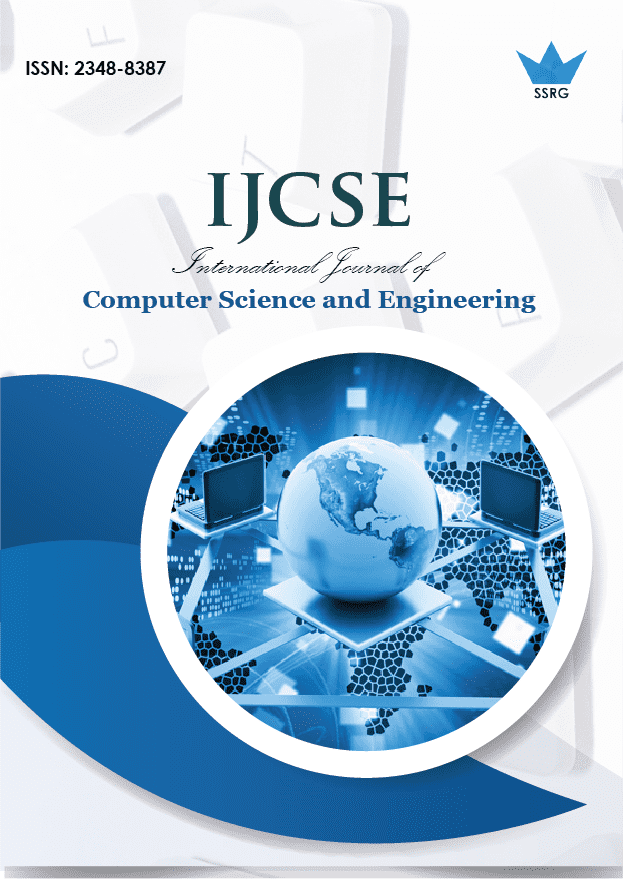AI-Powered Personal Fitness Coach Using Deep Learning

| International Journal of Computer Science and Engineering |
| © 2025 by SSRG - IJCSE Journal |
| Volume 12 Issue 6 |
| Year of Publication : 2025 |
| Authors : Budharaju Venkata Varma, Movva Sai Charan, Gopu Manopsitha, Andhugulapathi tarun, Dadigala Anvith |
How to Cite?
Budharaju Venkata Varma, Movva Sai Charan, Gopu Manopsitha, Andhugulapathi tarun, Dadigala Anvith, "AI-Powered Personal Fitness Coach Using Deep Learning," SSRG International Journal of Computer Science and Engineering , vol. 12, no. 6, pp. 1-9, 2025. Crossref, https://doi.org/10.14445/23488387/IJCSE-V12I6P101
Abstract:
This paper presents an AI-powered personal fitness coaching system utilizing deep learning and real-time computer vision to assist users in exercise recognition and personalized workout planning. Leveraging YOLOv11 convolutional neural networks, the model is designed to classify 36 exercise types. However, due to dataset limitations, the current implementation is evaluated on 30 well-represented exercises. The system provides dynamic feedback on movement correctness, helping prevent injuries and enhance training outcomes. A modular web-based interface allows users to interact, visualize performance graphs, and receive customized plans. The AI-powered fitness assistant demonstrates a significant advancement in computer vision applications for health and wellness, making fitness training more accessible and effective.
Keywords:
Deep Learning, Computer Vision, Exercise Recognition, Personalized Fitness, YOLO, Artificial Intelligence.
References:
[1] K. Lakshmi Joshitha et al., “AI-FIT COACH—Revolutionizing Personal Fitness with Pose Detection, Correction and Smart Guidance,” International Conference on Communication, Computing and Internet of Things, Chennai, India, pp. 1-5, 2024.
[CrossRef] [Google Scholar] [Publisher Link]
[2] Lakshay Gupta, Shrey Gurbuxani, and Kapil Madan, “Virtual Fitness Trainer using Artificial Intelligence,” Proceedings of the 2024 Sixteenth International Conference on Contemporary Computing, pp. 226-233, 2024.
[CrossRef] [Google Scholar] [Publisher Link]
[3] Nuno Mateus et al., “Empowering the Sports Scientist with Artificial Intelligence in Training, Performance, and Health Management,” Sensors, vol. 25, no. 1, pp. 1-12, 2025.
[CrossRef] [Google Scholar] [Publisher Link]
[4] R. Babitha Lincy et al., “Enhanced Gym Performance Prediction using Machine Learning: A Comprehensive Model for Personalized Fitness,” 3rd International Conference on Automation, Computing and Renewable Systems, Pudukkottai, India, pp. 1396-1400, 2024.
[CrossRef] [Google Scholar] [Publisher Link]
[5] Andrew Garbett et al., “Towards Understanding People’s Experiences of AI Computer Vision Fitness Instructor Apps,” Proceedings of the 2021 ACM Designing Interactive Systems Conference, pp. 1619-1637, 2021.
[CrossRef] [Google Scholar] [Publisher Link]
[6] Joseph Redmon et al., “You Only Look Once: Unified, Real-Time Object Detection,” Proceedings of the IEEE Conference on Computer Vision and Pattern Recognition, pp. 779-788, 2016.
[Google Scholar] [Publisher Link]
[7] Yann LeCun, Yoshua Bengio, and Geoffrey Hinton, “Deep Learning,” Nature, vol. 521, no. 7553, pp. 436-444, 2015.
[CrossRef] [Google Scholar] [Publisher Link]
[8] Helena de Almeida Maia et al., “Action Recognition in Videos Using Multi-stream Convolutional Neural Networks,” Deep Learning Applications, pp. 95-111, 2020.
[CrossRef] [Google Scholar] [Publisher Link]

 10.14445/23488387/IJCSE-V12I6P101
10.14445/23488387/IJCSE-V12I6P101